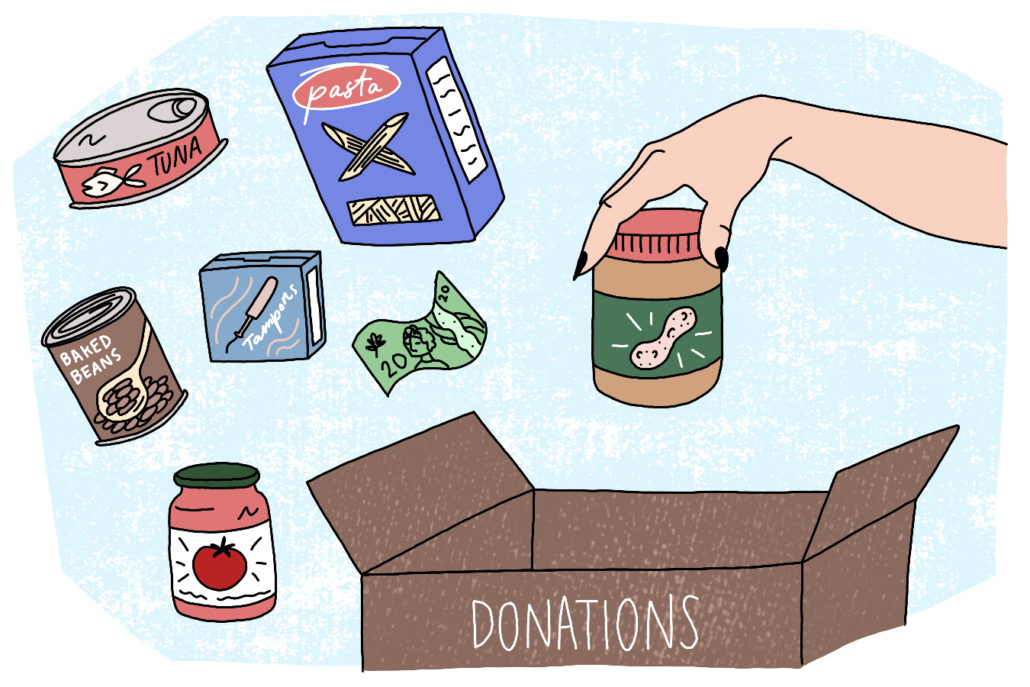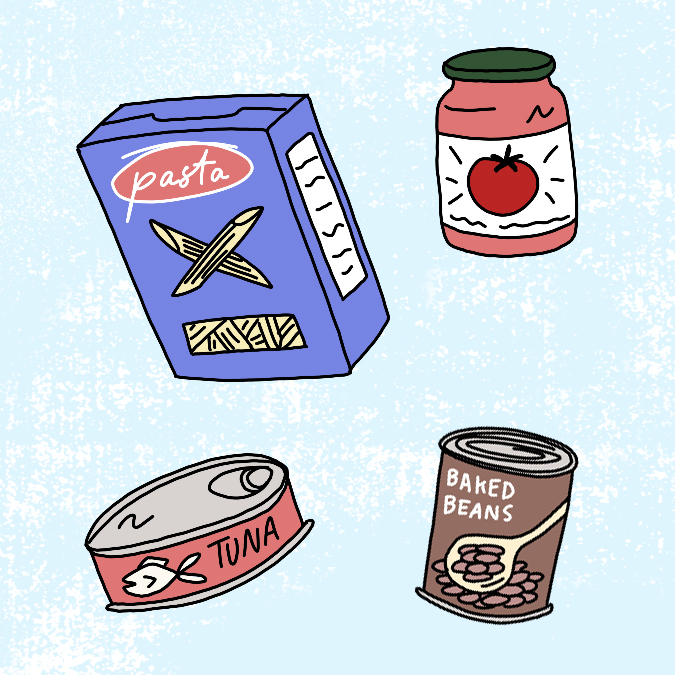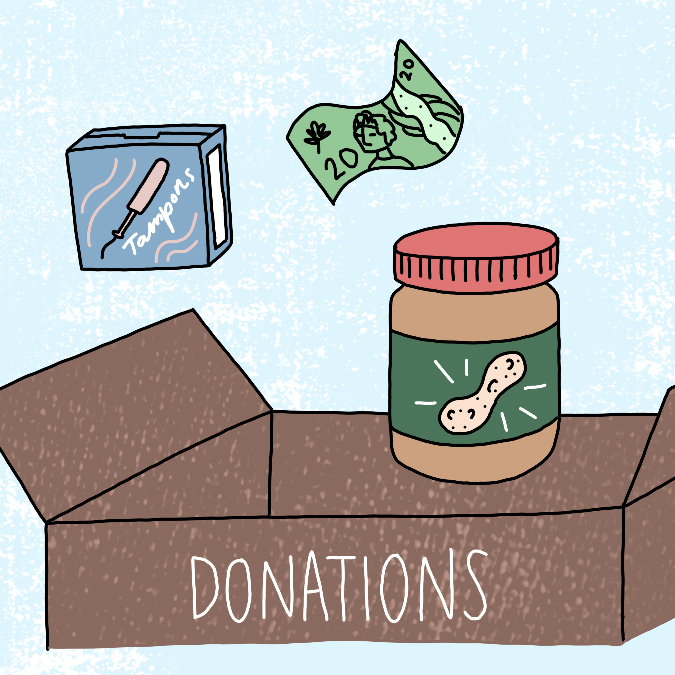
Food banks are grateful for any support, but here’s how to make the most effective donations
As food prices soar, more people across the GTA are struggling to make ends meet and relying on food banks, many for the first time — parents, seniors and even full-time workers. In 2024, there were close to 3.5 million visits to Toronto food banks — nearly 1 million more visits than in 2023.
“Over the past five years, the Parkdale Community Food Bank has seen a dramatic increase in demand due to the rising cost of living,” says Kathleen Raman Costa, Executive Director of Parkdale Community Food Bank. “Many of our community members spend 100% of their income on rent and rely on food banks to meet their dietary needs, not to mention other essentials for life such as transportation, recreation, clothing and more.”
The need is urgent. And food banks are doing everything they can to keep up.
If you’re thinking about donating, your support matters. This guide shows how to make the biggest impact — with the right items and the right kind of help.
What do food banks need most?
Food banks are grateful for any donations. But some items go further than others. Think of a food bank visit like grocery shopping — just without the bill. People are looking for variety, dignity and choice. That means shelf-stable proteins, nutritious staples and essential non-food items.
And yes — gift cards are definitely one of the best ways to support. But if you’re adding something extra to your grocery cart, here’s what food banks really need.
Note: We’ve put an asterisk (*) to mark the most needed items.

High-protein, shelf-stable items
- Tuna*: A small but mighty can of tuna packs an average of 30 grams of protein. It’s one of the most sought-after items by food banks.
- Canned meats*: Flaked ham, chicken, turkey — these are easy to store and serve.
- Nut butters*: Peanut butter — or any nut butter — is quickly scooped up. High in protein, kid-friendly and often on sale. If you notice a deal, buy extra to put in the donation bin.
- Beans and lentils: Dried or canned (low-sodium if you can), they really are the magical fruit! Versatile, filling and rich in fibre.
Nutritious pantry staples
- Canned fruit and vegetables*: Choose low-sodium veggies and fruit if you can. Canned tomatoes are especially versatile. When it comes to fruit, try to avoid items packed in heavy syrup and opt for those packed in juice or water instead.
- Pasta: Bags or boxes of pasta are a food bank staple. White or whole-grain are good choices or opt for gluten-free noodles to help meet a range of dietary needs.
- Pasta sauce: Anything goes when it comes to pasta sauce. Think alfredo, pestos, shelf-stable Bolognese or marinara.
- Nutrient-dense cereals and oatmeal*: Look for hearty cereals and oatmeal that are low in sugar and high in fibre — more than 2g per serving is a good benchmark.

Non-food essentials
- Toilet paper: Often overlooked, but always needed. Two-ply, if you can swing it.
- Baby food: Baby food in pouches or jars is great, and so are snacks for toddlers. If you can, throw in some diapers too.
- Hygiene products: Things like soap, deodorant, incontinence products, shampoo and conditioner are always useful.
- Period products: Pads, tampons or liners, these are basic dignity items that are always in short supply.
- Pet food: It’s not just people who need to eat. You can also help out furry friends by donating dry or wet food for cats and dogs.
- Supplies for food banks: Food banks often try to keep overhead costs low, so you can also donate the things they need to operate, such as cleaning products, office supplies and bags or boxes that can be used for packing.
What not to donate to a food bank
It’s not a misconception that food banks often have high-sugar cereals, junky snack foods (delicious, but not always nutritionally sound) and enriched-white-flour bread on their shelves. Food banks are happy to accept all donations — but some items aren’t as helpful. If you want your donation to go further, here’s what to avoid:
- Overly processed foods: Skip the sugary cereals, salty snacks and white bread when you can. Nutritious swaps like healthier cereal, a loaf of whole wheat bread or that coveted can of tuna make a bigger impact.
- Expired food: Even with good intentions, expired products from your pantry cleanup can’t be used and often have to be discarded. Check those dates before you donate.
Every action adds up — and together, we can help make sure no one in our community goes without the basics.